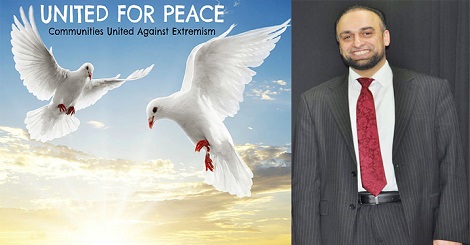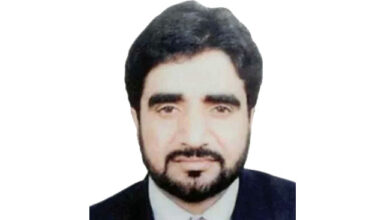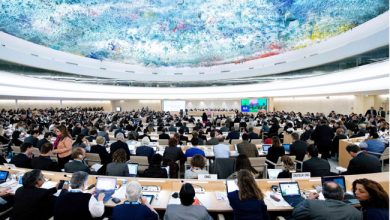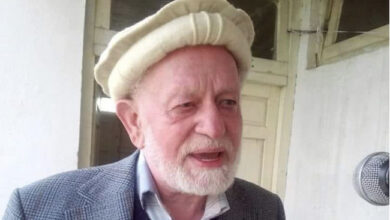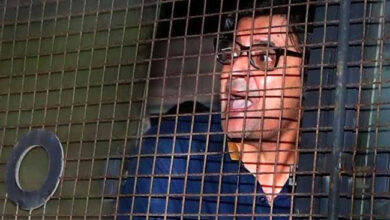The Kashmir Files: Myth or reality
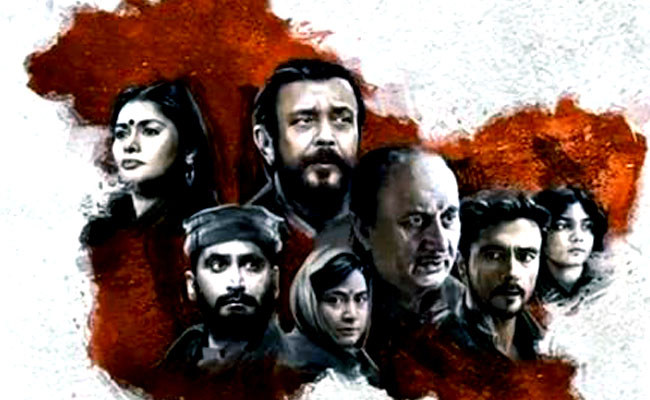
The Kashmir Files: Myth or reality
(First part of four parts)
Dr. Ghulam Nabi Fai April 25, 2022
‘Early reviews in the Indian media had found the film deeply Islamophobic, dishonest, and a provocation.’ Sanjay Kak, Kashmiri Pandit filmmaker and writer
This movie feeds into cycles of hate and revenge. It collapses Kashmir’s history and politics into an Islamophobic morality tale that is palatable and profitable to Hindutva India. Dr. Nitasha Kaul, Kashmiri Pandit novelist and academic.
“The Kashmir Files” written by Vivek Agnihotri is an Indian film which was released on March 11, 2022. The focus of the film is the exodus of Kashmiri Hindus (Pandits) in Jammu & Kashmir. The conclusion of the film is that 1990 exodus of Kashmiri Pandits was a genocide.
Among the many harms of the film is the intimate wrong it does to people from the Kashmir Valley. Both Muslims and Pandits bear the scars of conflict. Both communities need to share painful histories to get past them. These histories are not always of mutual recrimination but also of friendships and a common way of life lost in the armed conflict. The Kashmir Files seems to close off the possibility of a space where such longing may be expressed.
Is ‘The Kashmir Files’ myth or reality? The discourse needs to be supplemented with facts and figures.
But before presenting my personal observations, let me put forth the analysis of some prominent Pandits (Kashmiri Hindus) and Indian scholars.
Sanjay Kak, an eminent and celebrated documentary filmmaker, and writer but more importantly a Kashmiri Pandit himself who wrote an opinion piece in Al-Jazeera under the heading, ‘THE DANGEROUS ‘TRUTH’ OF THE KASHMIR FILES’ on April 14, 2022. He said that ‘early reviews in the Indian media had found the film deeply Islamophobic, dishonest, and a provocation.’
Sanjay Kak said that as a documentary filmmaker and writer whose work has centred on Kashmir for almost two decades, I have always been confounded by the facts – or the lack of them – of the departure of the community in 1990. My community, I should say, for, I am a Kashmiri Pandit. There is little clarity about even the most elementary things. We also know that early in 1990 some Kashmiri Pandit families began to flee in fear. Their leaving was probably intended as a temporary move though it was to prove tragically permanent for most. We also know that despite all this, at least 4,000 Kashmiri Pandit families never left their homes. They have continued to live in Kashmir, not in secure ghettos, but scattered across the valley. Living in what often feels like a war zone, without extended networks of family and community, their lives are not easy. But nor is life easy for their Muslim neighbours, with whom they live in what has come to be recognised as one of the most militarised zones in the world.
The simplest questions fail to yield reliable answers, Kak warned. How many Kashmiri Pandits lived in the valley prior to 1990? The figures conjured up by the right-wing fluctuate between 500,000 and 700,000, although considered estimates place it at about 170,000. How many of them left the Kashmir Valley after 1990? A recent response by the region’s Relief and Rehabilitation Commissioner placed the figure at 135,426, although on inflamed television debates the needle again fluctuates between 500,00 and 700,000 and can inexplicably go up to a million.
Ipsita Chakraverty, an Indian artist, writer and activist wrote in Scroll.in, on March 19, 2022, “As for the numbers displaced, researcher Alexander Evans suggests there were 160,000-170,000 Kashmiri Pandits in the Valley in 1990, most of whom fled in the violence. Other scholars claim the numbers were lower. The Jammu and Kashmir government’s website says 60,000 Kashmiri Hindu families migrated out of the Valley during the violence, which still does not match the five lakh figure.
Ipsita Chakraverty echoed the same sentiments by writing that each death is a tragedy. Each instance of forced migration is a wound. But the film appears to deliberately exaggerate numbers to paint not just militants but all Kashmiri Muslims as a hostile people who colluded en masse in the persecution of their Pandit neighbours.Sanjay Kak explained, “This is a film that brutalises its audience with scenes of such extreme violence that it eventually silences the possibility of considering alternative narratives that we know to be true. I could think of few: although terrible tragedies did happen to many individuals, most Kashmiri Pandit families were not betrayed by their Muslim neighbours. While some properties were torched and destroyed, most temples and homes were not ransacked or looted, and many more have run to ruin over years of neglect. Most critically, this myopic narrative succeeds in obscuring the fact that what happened in Kashmir in the 1990s was not centrally a conflict between Muslims and Hindus. It was an uprising against the Indian state.”
Eventually, ‘The Kashmir Files’ is not about setting straight a historical record of Kashmir in the 1990s or creating an environment that might ease the return home of a community in exile. Its narrative is instead powered by a visceral demonisation of the Kashmiri Muslim, one that renders reconciliation ever more difficult. And by connecting the return of the Kashmiri Pandit to the dream of a glorious ancient past, a political project that elides Kashmir’s complicated history of 700 years, it seeds the idea of a return to a Hindu homeland. This is an idea that is redolent with implications of dispossession and settlement. That is what makes its “truth” dangerous, Sanjay Kak concluded.
Dr Nitasha Kaul, novelist, poet, academic and a Kashmiri Pandit wrote an opinion in ‘The News Minute’ under the heading, “Kashmir is not a file: Propaganda and politics in India” on March 24, 2022. She said that this movie can show ‘Free Kashmir’ banners and refer to the plebiscite on Kashmir as a condition of accession that was never carried out – in order to debunk these things – but anyone else in real life who dares to seriously discuss these very things publicly in India risks being imprisoned or charged with sedition.
Dr. Kaul added that the movie dwells on Kashmiri Pandit suffering alone and makes ample use of Islamophobic tropes – all Muslims in the movie are violent, barbaric or lecherous or devious or vile.
This movie feeds into cycles of hate and revenge, Dr. Kaul warned. It collapses Kashmir’s history and politics into an Islamophobic morality tale that is palatable and profitable to Hindutva India. It should offend all Indians, Hindus, Muslims, Kashmiri Muslims, men, women, and others who have ever cared for humanity across religious lines.
Ajit Singh, an Indian educationist wrote an Op-Ed in ‘Brown Girl Magazine’ entitled, ‘The Kashmir Files – Fabricates the Truth to Demonize Muslims’ on March 24, 2022. He said as far as Kashmiri Pandits are concerned, they have every right to present their version of the story, but they didn’t need to hire an amoral sycophant who won’t shy away from using every nasty trick in the fascist playbook to create irreparable fault lines that will ultimately help the incumbent political party to dismantle democracy in the garb of portraying the true accounts of victims.
“The Kashmir Files” Ajit Singh explained, has tried to justify the unilateral actions of the government, one of them being the unconstitutional abrogation of Article 370 that really had nothing to do with the exodus of Pandits. A film that is stuffed with nefarious ulterior motives and propagates malice against people from particular sections cannot be made to stand in the line of worthy contenders that could represent India on prestigious international platforms.
“I don’t think that the makers of this film want them (Kashmiri Pandits) to return to Kashmir. Perhaps what they intend is for them to always stay out of here.” Omar Abdullah, former Minister of State for External Affairs, Government of India and for Chief Minister of Jammu & Kashmir, Indian Express, April 23, 2022.
“The prime minister (Modi) and the BJP are promoting it (The Kashmir File) by giving free tickets and making it tax-free. They are inciting people. They divide people on religious lines.” Mehbooba Mufti, former Chief Minister of Jammu & Kashmir, NEWSCLICK, March 23, 2022
Debasish Roy Chowdhury, an Indian journalist wrote in TIME on March 30, 2022, “But accuracy is not the film’s priority, nor is it interested in justice and closure for the Pandit community. Instead, the purpose of The Kashmir Files is to inflame hatred against Muslims; against secular parties that Modi’s followers brand anti-Hindu; liberal intellectuals and activists, whose faith in India’s inclusive democracy runs contrary to the supremacist tenets of Hindu nationalism; and against the liberal media that the Hindu right disparages as sold-out “presstitutes.” …Accordingly, Muslims are portrayed as uniformly evil, treacherous, and predatory. Even little Muslim boys are shown as demonic.”
(To be continued)
Dr. Ghulam Nabi Fai is the Chairman, Washington-based ‘World Forum for Peace & Justice’.
He can be reached at: 1-202-607-6435. or. gnfai2003@yahoo.com

